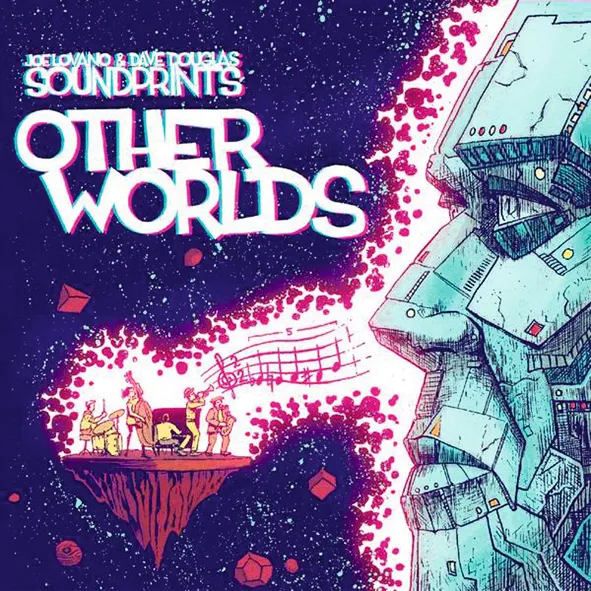Joshua Jaswon Octet: Silent Sea
Sea Anna Serierse (vocals), Joshua Jaswon, Marc Doffey (saxophone), Miguel Gorodi (trumpet, flugelhorn), Jan Landowski (trombone), Johannes Mann (guitar), Sidney Werner (double bass), Aaron Castrillo (drums) Ubuntu Music UBU 0065
Today’s jazz musicians seem to be more socially aware than their forebears, tackling injustice and other big issues through their work. Young London saxophonist Joshua Jaswon has created music on themes of the environment and Brexit after reading Silent Sea, a poetry collection collated by Jackie Kay, Scotland’s makar.
The prosaic title for the pieces that form the core of this album – ‘Reduce/Reuse/Recycle Suite’ – suggests a dispiriting listen. But the six movements and their variations make for a thrilling and provocative programme. ‘Silent Sea’, based on a poem by Rachel Boast, introduces singer Anna Serierse, whose soprano lines sheer across the Octet’s surging sound.
Segueing into ‘Extinction’, Serierse joins wailing brass soloists in giving voice to Kay’s angry rejection of populism and climate change denial. Serierse also starts the two-part ‘Still Life with Sea Pinks and High Tides’, reciting and reworking the opening stanza of Maura Dooley’s poem, preparing the ground for the brass section to pick up and expand the pulse of the tune. It’s a powerful soundtrack for desperate times.
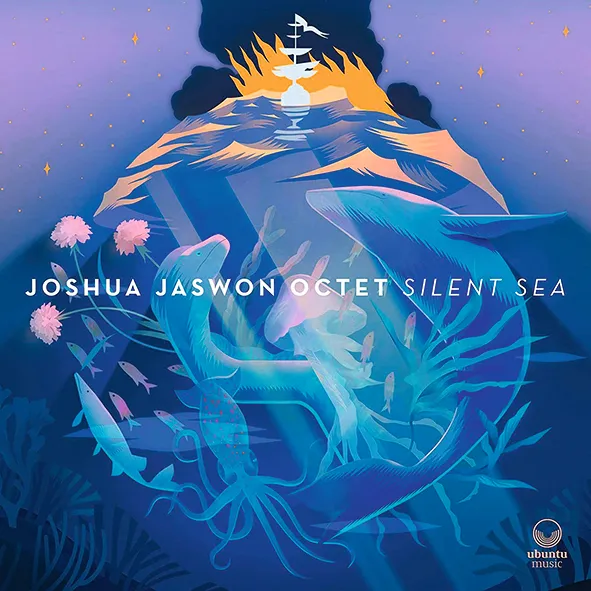
Rob Barron: From This Moment On
Rob Barron (piano); Jeremy Brown (bass); Josh Morrison (drums) Ubuntu UBU0064
The repertoire of most young/youngish jazz musicians these days consists almost exclusively of their own original compositions. This is entirely commendable, but I sometimes feel nostalgic for the days when certain well-established tunes and chord-sequences were a kind of lingua franca. This treasury of tunes was quarried by almost everybody and you could readily compare performances of the same piece whilst enjoying spotting the origins of litigation-dodging palimpsests of ‘I Got Rhythm’, ‘Cherokee’ or ‘Indiana’.
Barron joyfully plunders some of the greatest, most enduring tunes in the jazz and popular songbooks, from Oliver Nelson’s ‘Butch and Butch’ to Victor Young’s ‘My Foolish Heart’, modestly throwing in a couple of his own exemplary compositions (‘Fortune Green’ and ‘Evidently’) along the way. He plays with incisiveness, sinewy strength and grace, making imaginative use of the melodies and chords, and is well matched with Brown and Morrison. His CV stretches from here to way over there as a sideman and session musician with big names in the jazz and classical fields as well as appearing on film soundtracks – and this is classic piano trio jazz at its best.
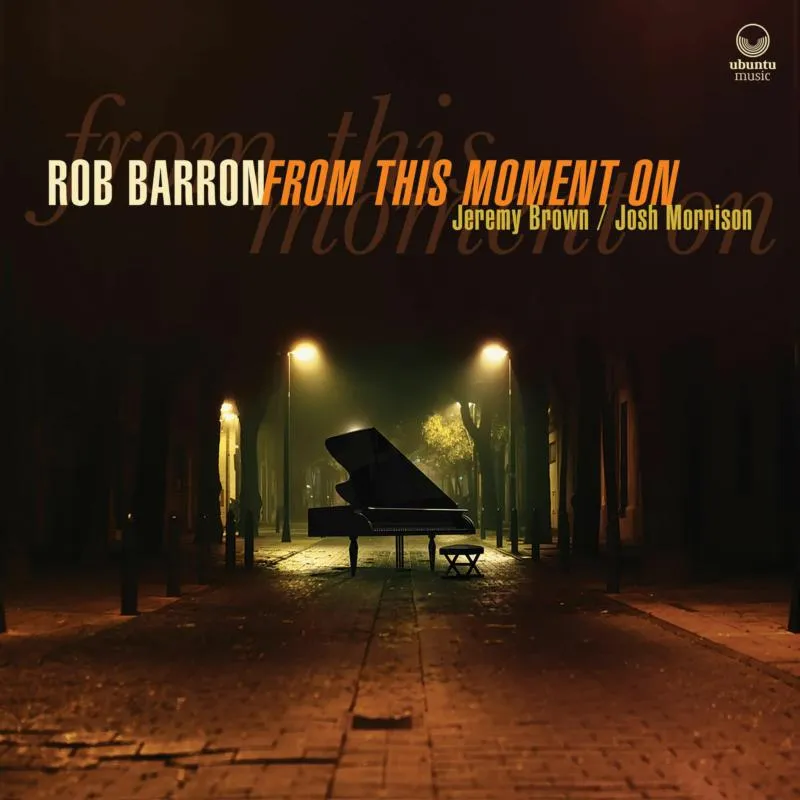
Acadia: Way of the Cairns
Patrick Cornelius Whirlwind WR4766
Patrick Cornelius’s Acadia takes its name from an area in Maine, the inspiration for much of this music. On Way of the Cairns Cornelius celebrates the beauty, mystery and freedom of National Parks and other tracts of wildness in nine varied, highly-engaging compositions by him and (one each) drummer Paul Wiltgen and pianist Kristjan Randalu.
Cornelius says he wanted the band, rather than his tenor, to be the lead voice, and this has largely been achieved. The title track could almost be called, after Beethoven, ‘cheerful feelings on arriving in the countryside’. The album has an airiness and freshness all too desperately needed.
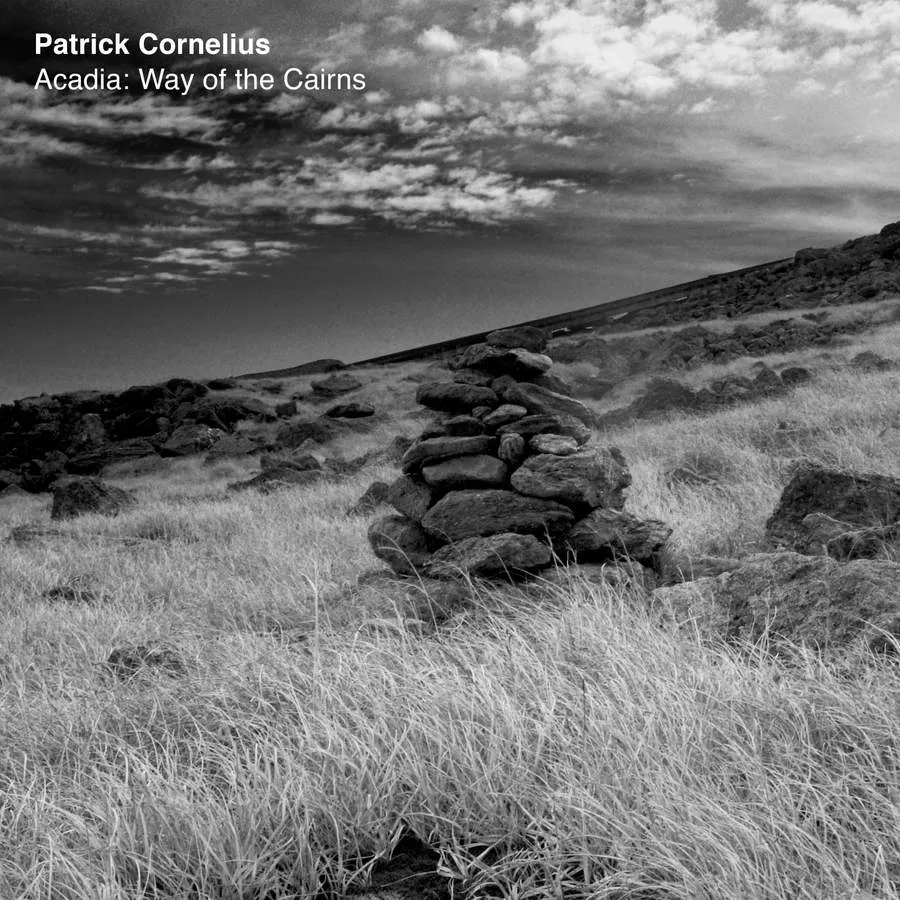
QOW Trio: QOW
Riley Stone Lonergan (tenor saxophone), Eddie Myer (double bass), Spike Wells (drums) Ubuntu UBU0068
The double bassist associated with respected indie strum-rockers Turin Brakes convenes a superb band featuring a veteran Britjazz drummer who doubles as a priest and an award-winning young tenor sax player. Hands up if you saw that coming.
Ornette Coleman’s mid-1960s trio with David Izenson and Charles Moffett inspired a whole sub-movement in which the absence of a traditional chordal instrument freed jazz from constraints that it was ready to outgrow, and created a rich and varied legacy that ranged from the prog-jazz of Back Door to the searing ferocity of Charles Gayle. Naming these names is to praise rather than to bury this animated unit that surely belongs in such company if this adrenaline-fuelled yet perfectly articulated one-take set is anything to go by. Ideally the bass could have been slightly further forward in the mix, but that’s forgiven; this music is wonderful stuff and failing to buy this album would be a terrible mistake.
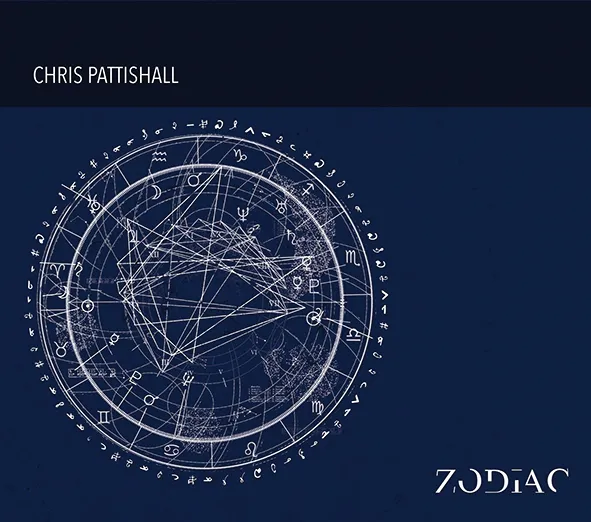
Jakob Bro: Uma Elmo
Jakob Bro (guitar), Arve Henriksen (trumpet, piccolo trumpet), Jorge Rossy (drums) ECM 6024 3528227 5
Danish guitarist Jakob Bro’s new recording is quintessential ECM: a small group of intensely talented individuals making rarefied music in the moment, captured by superb production values.
Bro, Henriksen and Rossy always excel in the improvising trio format, but this session in Swiss Radio’s studio in Lugano was the first time they had played together. Apart from having written the raw material, it’s not obvious that Bro is the leader. Norwegian Henriksen takes the melodic line throughout the programme while Bro brings the harmonic gravity; drummer Rossy is a constant, time shifting presence. Stand-out piece ‘To Stanko’ is a low lit, Latin-tinged eulogy to the late Polish trumpeter, Henriksen parsing his loss with a sound that’s at first breathy then fully formed. ‘Housework’ opens with a woody, velvet sound suggesting that Henriksen has switched to bass clarinet (he’s actually using a sax mouthpiece in his trumpet).
All three players were influenced by the late Paul Motian, the drummer with whom Bro honed his luminous technique. Their time is fluid and yet what they play is strongly connected; it’s abstract music that’s also deeply profound.
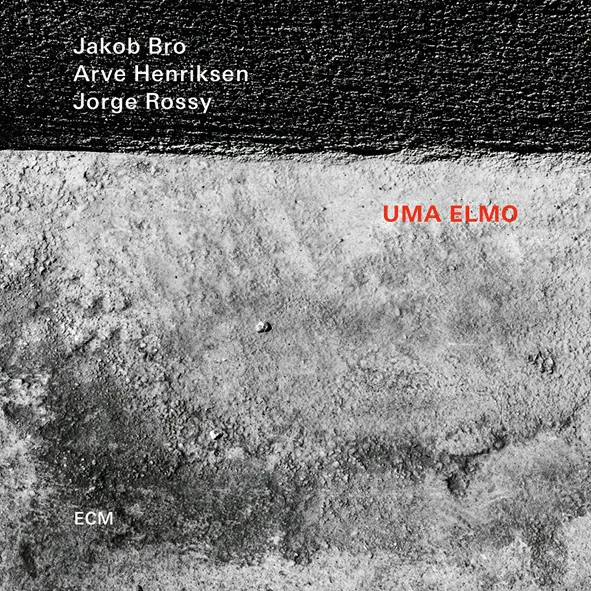
Where Will the River Flow
Matt Carmichael Porthole Music PM 01
Young jazz players often struggle to impose an identity on their music. Not so Matt Carmichael, the 21-year-old Scots tenorist whose debut album Where Will the River Flow immediately establishes him as an appealing and distinctive new voice in a crowded scene. The BBC Young Jazz Musician finalist can write too: the nine tunes here have a strong Celtic connection as well as a Scandinavian feel in places that contribute to the quartet’s bracing sound. ‘Firth’ surges gloriously and romantically along on Fergus McCreadie’s rippling piano riff, while there are enjoyably dangerous rapids for pianist and leader to navigate in ‘The Spey’, for example. Like Charles Lloyd and Abdullah Ibrahim, Carmichael’s got the gift of uplift in his music.
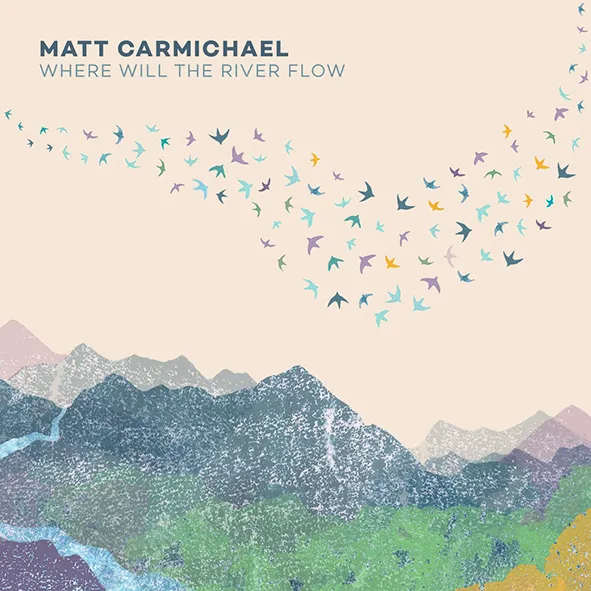
Two Roses
Avishai Cohen (voice, acoustic bass, electric bass, synthesizer), Mark Guiliana (drums), Elchin Shirinov (piano), Gothenburg Symphony Orchestra/Alexander Hanson Naïve/believe M 7370
Anyone tempted to revisit the argument about what jazz is or isn’t should probably not start here. This album is a tour de force in which a set of ambitious orchestral pieces is leavened with a handful of poignant songs and standards, its eccentric programming being just one reason why the entire project should have been a catastrophic failure.
There’s plenty more to take issue with: the orchestration evokes Gershwin, Ellington, Tchaikovsky’s ballets and the film scores of Basil Poledouris (often all at once) and is overcooked in the way that has composition tutors reaching exasperatedly for their red pencils. The standards are schmaltzy and Cohen’s bland singing voice suggests he should stick to playing the bass.
Nevertheless, the whole vast apparatus somehow draws the listener in as if by its own gravitational field and absolutely works in spite of itself, infused as it is with the kind of imagination and propulsive conviction that can, on a good day, make for great jazz (or near-jazz).
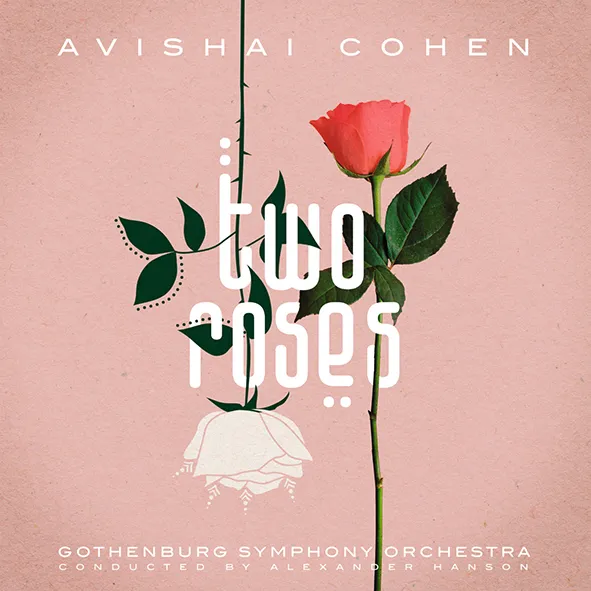
Tales from the Punjab
Shez Raja (bass guitar) Ubuntu UBU0077CD
The are also ways of adding to the scope of jazz without using large resources (see Two Roses above), as demonstrated by Shez Raja and associates on Tales from the Punjab, which sees this superb electric bassist drop down a few gears from his usual melodic groove-driven metafunk to explore his Punjabi roots alongside several musicians from the region. Raja deftly sidesteps the clichés of Indo-jazz, perfectly contextualising his lively contributions to this set of compositions and improvisations that variously feature voice, tabla, sarangi (possibly the only bowed string instrument in the world that requires the strings to be stopped by the player’s cuticles), the bansuri flute and even the cajon, the box drum with roots in Africa and South America. Vivid and highly engaging.

Sand i en vik
Maria Kannegard (piano) Jazzland 3779281
Back in more conventional territory, two Norwegian pianists have released interesting trio discs in recent months. Maria Kannegard’s Sand i en vik – ‘Sand in a cove’, since I know you asked – also features bassist Ole Morten Vågan and drummer Thomas Strønen (noted for his work with the UK’s Iain Ballamy and much else) and is an appealing exposition in which a very funny three-stroke thrash at the piano’s innards (it lasts 57 seconds and gets its own pithy title) precedes a set of tight, pokey tunes driven along by inventive riffs and real-world quasi-loops. The overall result has an I-dare-you-to-stop- listening quality that is sustained throughout the set. Lovely stuff.
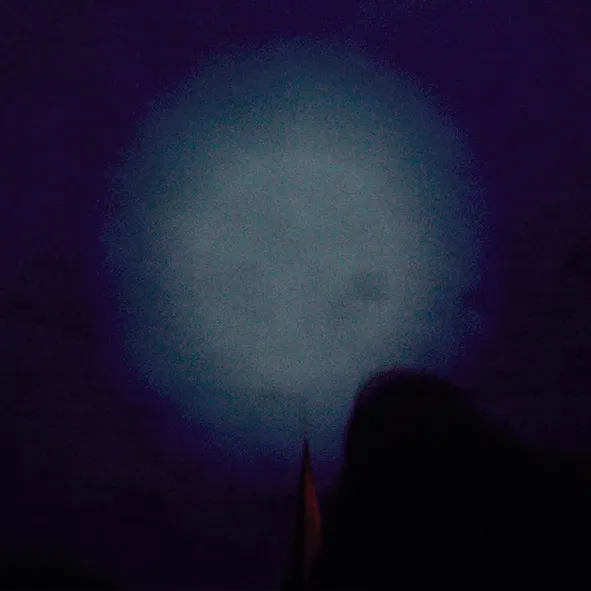
Isfar Sarabski: Planet
Isfar Sarabski (piano); Alan Hampton (bass); Mark Guliana (drums); Makar Novikov (bass); Sahsa Mashin (drums); String Ensemble/Lev Trofimov; Shahariyar Imanov (tar); Baku String Quartet Horizons 0190295264239
Azerbaijani pianist and composer Sarabski says the album’s title ‘summarises my feelings and views about our planet. The compositions reflect on the people, the events that have affected us all over the past few years, and the new situations we have to deal with, with the wish to enter into a dialogue with my listeners.’ His gigs have caused a stir for some time, including when he won the solo piano award at the Montreux Jazz Festival. This album shows why. His work is informed by a broad range of jazz and classical influences which, together with elements of Eastern European and Arabic traditional music, pervade his work. All the pieces here are original compositions except for ‘Swan Lake’, where Tchaikovsky’s themes are dextrously woven into an exuberant celebration. His own tunes vary in mood but always capture the attention and his improvising is powerful, but neither his composing nor his performing is heavy-handed. Among the highlights is ‘The Edge’, enriched with gorgeous eastern sonorities from the lute-like tar.
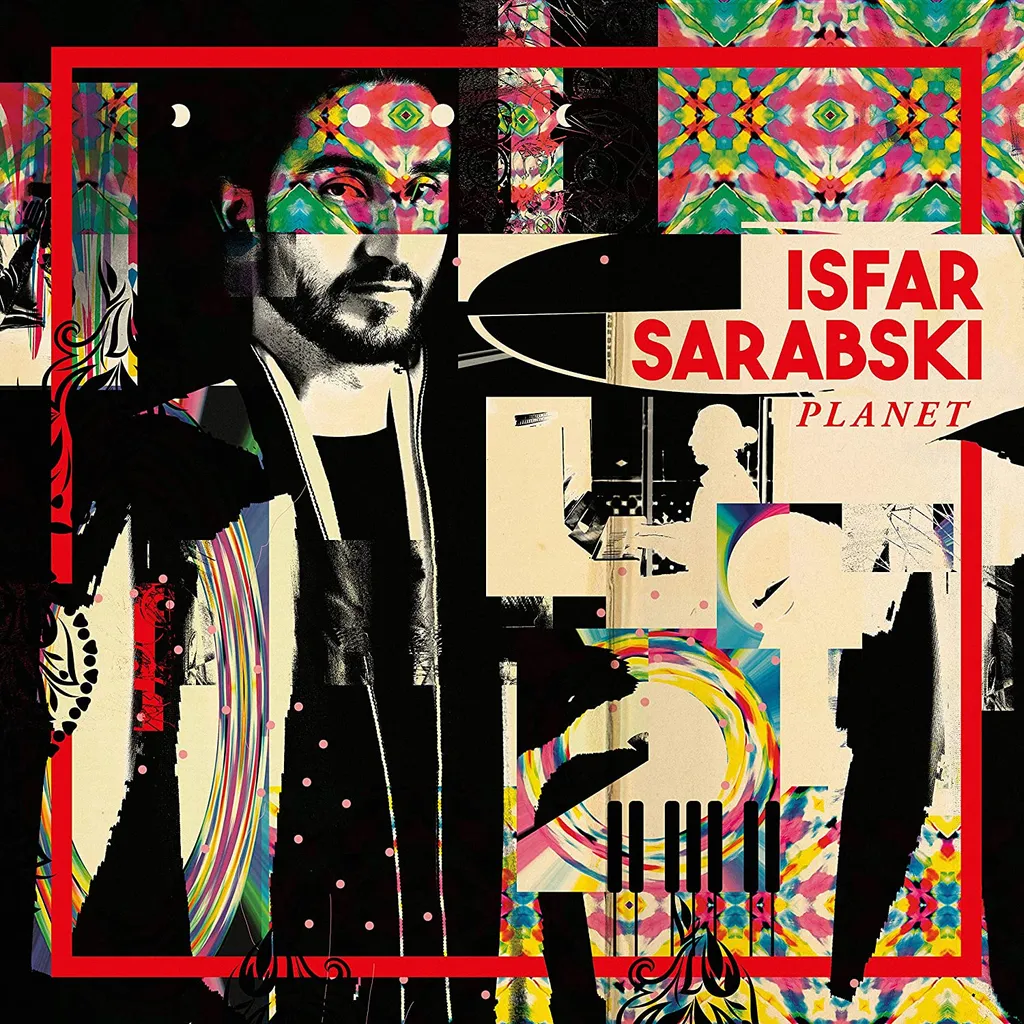
After the Real Thing
Roy Mor (piano) Ubuntu UBO0081
For After the Real Thing, his debut album as leader, pianist Roy Mor presents a rich mix of his own compositions, standards by Kurt Weill and Hoagy Carmichael, plus two Israeli classics, symbolising his journey from Tel Aviv to New York and back. It’s encapsulated in the opening tracks: the beguiling sound of the oud introduces an atmospheric traditional song, the title track exemplifies classic piano jazz before ‘Jerusalem Mezcla’ melds both worlds splendidly. An elegant and sparkling improviser, Mor has already won several awards and performed with many distinguished international musicians. This album should strengthen his reputation further.
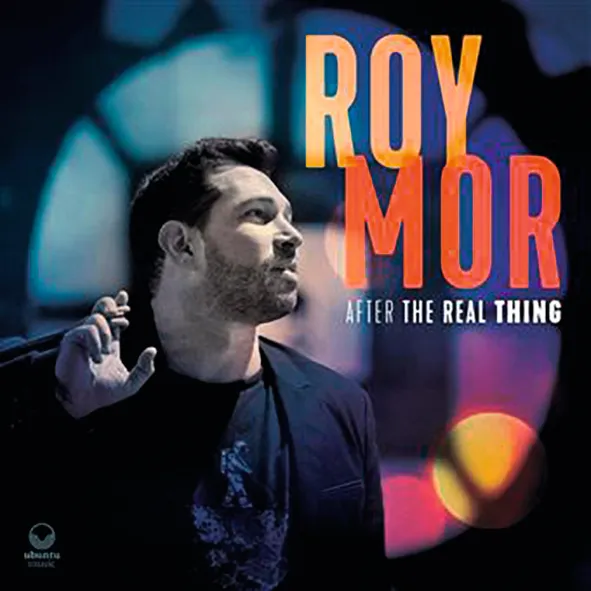
Sunrise Reprise
Chris Potter Circuits Trio: Chris Potter (saxophone) James Francies (keyboard), Eric Harland (percussion) Edition EDN1171
Recorded last September during a relaxation of Covid restrictions, Sunrise Reprise was a cathartic experience for the Chris Potter Circuits Trio after so long being unable to record with other musicians, although they had previously developed the material on the road. Most of us can readily identify with being severely limited in our contact with others, so the sense of release pervading this album strikes a potent chord, from the somewhat melancholic and tentative opening track emerging into the light, via the heart-on-sleeve tenor sax feature ‘The Peanut’, to the complex exuberance of ‘Serpentine’.
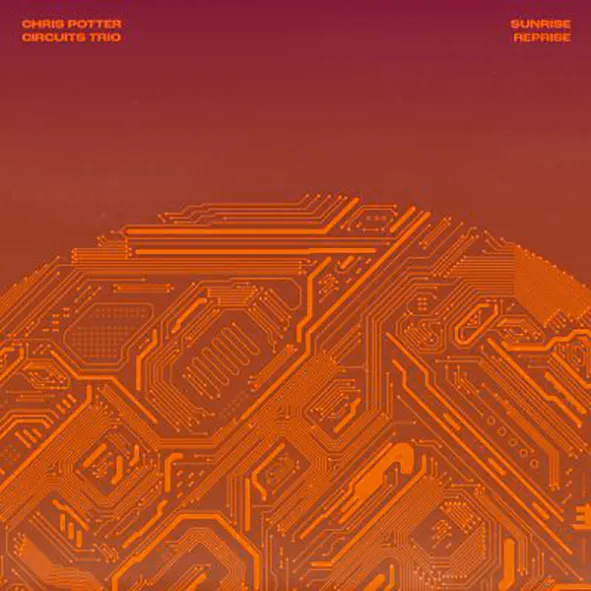
Sankofa
Amaro Freitas (piano), Jean Elton (bass), Hugo Medeiros (drums, percussion) Far Out Recordings FARO 225
The Brazilian pianist Amaro Freitas hails from Recife, but the region’s jaunty music is not the main element in his trio’s art. Though highly rhythmic, the pianist’s dappled, sometimes startling sound has glimpses of Art Tatum’s stride jazz and even the impressionism of Erik Satie.
Africa is the inspiration for his third album, Sankofa, named after the West African symbol of a flying bird looking back over its shoulder to its past. The title track has a simple rippling riff and a shifting time signature, building into a catch-as-catch-can race with bass and drums.
On ‘Ayeye’ (Yoruba for ‘celebration’) Freitas develops a trilled melodic fragment into a neo-soul party piece. ‘Baquaqua’ (the name of a West-African slave brought to New York from Brazil) is driven hard by a frantic rhythm section, barely restrained by Freitas’s ringing ostinato. The linear improvisation on ‘Cazumbá’, with its organic percussion and bird calls, evokes a trip into the rainforest.
Brazilian music is legendarily diverse, coming out of African, European and indigenous influences. And with Amaro Freitas, it’s a melting pot that just keeps on giving.
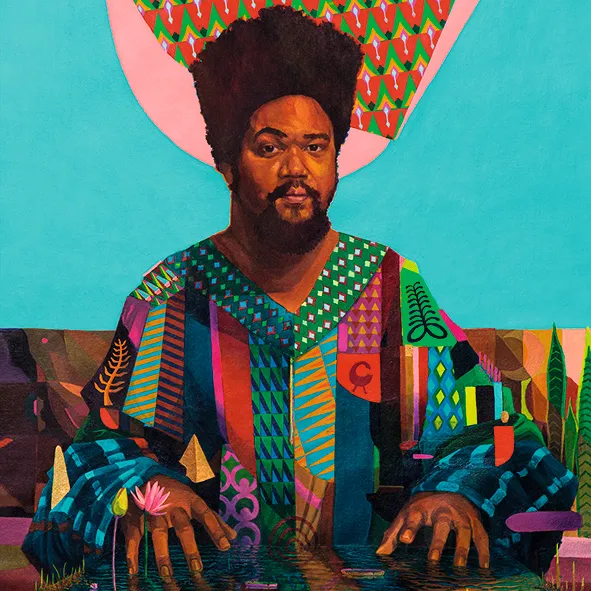
Black to the Future
Sons of Kemet Impulse 00602435622323
It’s been ten years since UK-based saxophonist Shabaka Hutchings first introduced his Sons Of Kemet project, but the group’s torrent of ‘rhythmic relentlessness’ (his words) is unabated. Conceived in the wake of the George Floyd murder, the performances on Black To The Future are intended to provoke discussion about the black experience.
There’s a lot to unpack, with feisty spoken-word flow from poets Moor Mother and Joshua Idehen, plus hip-hop and grime artists Kojey Radical and D Double E rallying around the core group of bubbling tuba and two percussionists. It’s a darkly epic sound, Hutchings’s own complex weave of woodwind in the mix taking protest music to a probing, abstract new level.
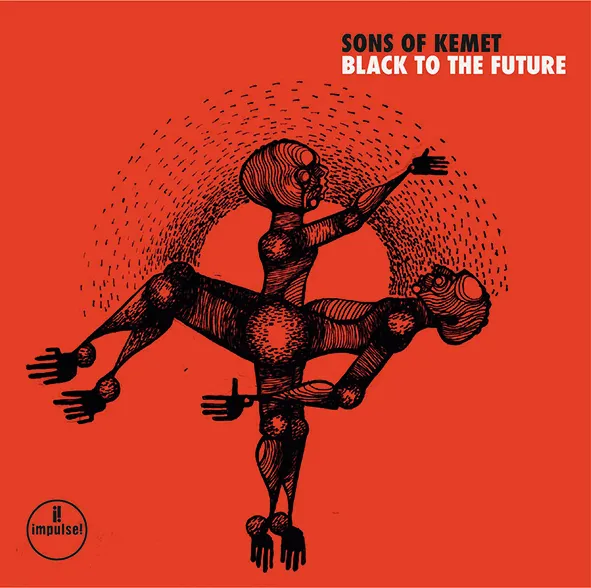
Other Worlds
Sound Prints quintet Green Leaf Music GRE1084
Under the influence of Wayne Shorter’s music, and co-led by saxophonist Joe Lovano and trumpeter Dave Douglas, the Sound Prints quintet have become high priests of urbane improvised jazz. After ten years gigging together, the players’ interaction is almost eerie. This third studio outing, Other Worlds, takes outer space as its theme, the wide-open arrangements balanced by Lawrence Fields’s piano work and Joey Baron’s fast acting drum work. ‘Space Exploration’ begins hesitantly, Lovano and Douglas swapping skittish lines, bassist Linda May Oh pacing briskly behind. A standout ballad, ‘The Transcendentalists’, features Douglas’s muted horn casting a golden, sepia tone across the sonic firmament. Out of this world.
